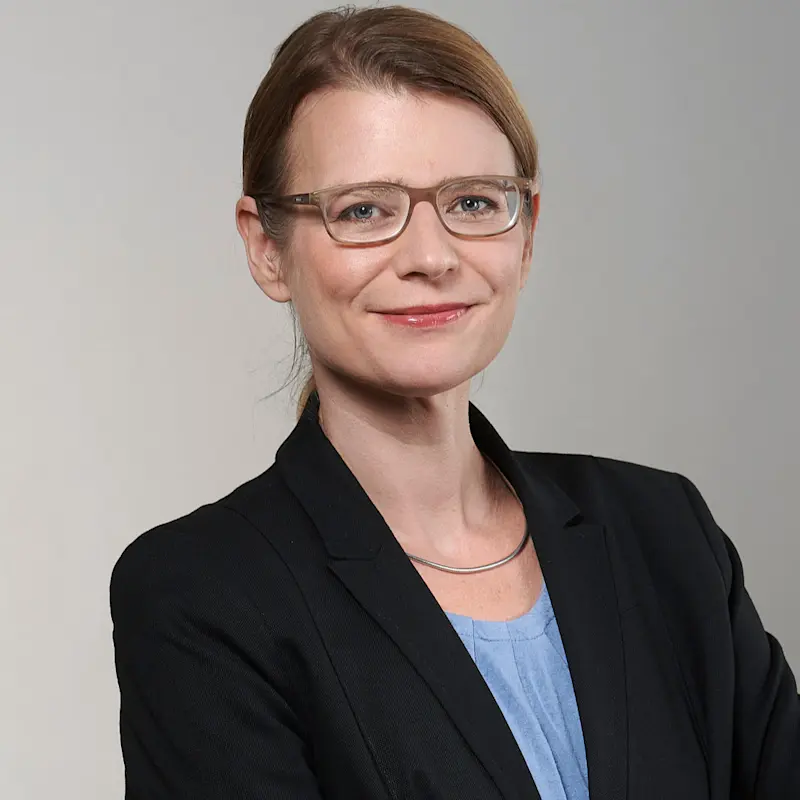Growth market for exoskeletons
“SUITX by Ottobock” continues to expand world’s largest partner network for industrial exoskeletons

Monday, 16 December 2024
The market for industrial exoskeletons grew significantly in 2024. More and more companies are investing in innovative, ergonomic and productivity-enhancing solutions. Current market analyses estimate that sales of exoskeletons will increase to 3.9 billion US dollars in 2030, with an average annual growth rate of almost 25 per cent.[i] Tens of thousands of “SUITX by Ottobock” exoskeletons are already used by customers, for example, automobile manufacturers such as Toyota North America, logistics service providers such as DB Schenker and furniture stores such as IKEA. Exoskeletons represent a key technology for companies to meet the current challenges in the world of work: They protect employee health, reduce absences due to illness, lower costs and help recruit and retain urgently needed specialists over the long term.
In order to meet growing international market demand, “SUITX by Ottobock” has been investing heavily in expanding its global sales network since 2020. “With 16 partners now covering 26 countries on five continents, we have worked together to build up a network of exoskeleton expertise that is unique in the world,” says David Duwe, Vice President SUITX by Ottobock Europe. “Partners range from specialist personal protective equipment dealers to multinational suppliers of automation technology. This makes it possible to respond specifically to different customer requirements – also with regard to cultural differences.” In autumn 2024, “SUITX by Ottobock” integrated companies from South Africa and Denmark in order to further strengthen the network and expand access to exoskeleton solutions.
A strong team
The sales network is an ideal complement to SUITX by Ottobock’s own international key account management. With specialised teams for logistics, automotive and industry, key account management is able to efficiently handle multinational customer inquiries and manage global rollouts.
Just like their own employees, “SUITX by Ottobock” partners are highly qualified experts in exoskeleton technology, ergonomics and occupational health. They are trained and certified several times a year, so that a very high standard of consulting and implementation is guaranteed globally. “With our extensive expertise, we can work together to implement tailor-made solutions around the world,” says David Duwe. “Our collaboration goes far beyond just sales: Intensive training sessions, regular ergonomics courses and expert meetings encourage a continuous exchange of knowledge.” This allows customers to discuss their specific requirements and opportunities for optimisation directly on site as well as to familiarise themselves with, test and purchase exoskeletons in detail. Thanks to the local presence of the partners, companies benefit from immediate access to expertise and products.
Background: Insights from international markets
The members of the partner network benefit greatly from the international exchange of experience. Although challenges are often similar for companies around the world, there are regulatory and cultural differences when introducing exoskeletons. A few examples illustrate this:
The exoskeleton market in South Korea is growing dynamically and is typical of many Asian countries. “The rapidly aging workforce is causing major problems, especially for small and medium-sized enterprises, as it is becoming increasingly difficult to attract reliable professionals,” says Henry Eum from the local partner. “This development increases interest in ergonomic solutions such as exoskeletons that increase efficiency and safety in the workplace. Since the introduction of stricter rules to prevent occupational accidents in 2022, companies have been forced to take more preventive measures. This has significantly accelerated the use of exoskeletons as a safety-promoting technology.” Large corporations in the shipbuilding, automotive and electronics industries are already increasingly using exoskeletons in South Korea, especially for complex, non-standardised tasks that cannot be automated. In doing so, they are setting an important incentive for their wider use in industry.
The new network partner from South Africa sees the greatest opportunities in the automotive industry. “This industry has traditionally been strongly represented, which is why we see great potential, especially in vehicle assembly as well as in workshops and service centres,” explains Shaun Erasmus, Customer Engagement Manager. In final assembly, where employees often have to work overhead, the IX SHOULDER AIR in particular provides important support. In addition, the distribution partner is aware of a rapidly increasing demand in the logistics industry, particularly in warehouses and intralogistics. Back exoskeletons such as the IX BACK AIR can make a significant contribution to relieving strain while handling materials and lifting.
The market for industrial exoskeletons is still developing in Spain, Portugal and South America as well, says César Gonzalvo, who is responsible for and expanding the region with his team. “We see significant growth potential, especially in sectors such as automotive, logistics, rail and agriculture, but exoskeletons are often introduced only gradually. Companies typically procure one or two devices at first so they can continue testing them internally. The lack of expertise on the part of occupational health and safety controllers and the reluctance of employees to use additional equipment can pose hurdles.
As a long-standing partner, Gianluca Di Mauro describes the exoskeleton market in Italy as extremely dynamic. The acceptance of the products is steadily increasing, and the goal of using exoskeletons as an effective tool to prevent musculoskeletal disorders among workers is becoming increasingly important. However, dissemination is hampered by a lack of clearly defined regulations. Recognition of exoskeletons as personal protective equipment (PPE), comparable to safety shoes or helmets, would accelerate this development considerably.
“Technological innovations are a key driving force for the market for exoskeletons in Austria,” says Wolfgang Baumann, managing director of the local “SUITX by Ottobock” sales partner. “Promising growth opportunities are opening up, particularly in the areas of sensors and artificial intelligence, for example, by adapting the support to individual movement patterns in real time.”
The “SUITX by Ottobock” development team is driving progress in the field of exoskeletons with a great deal of innovation and a clear goal. Through the use of AI-supported analysis tools, precise biomechanical modelling and the bundled know-how of the international partner network, the team strives to create healthy workplaces around the world.

